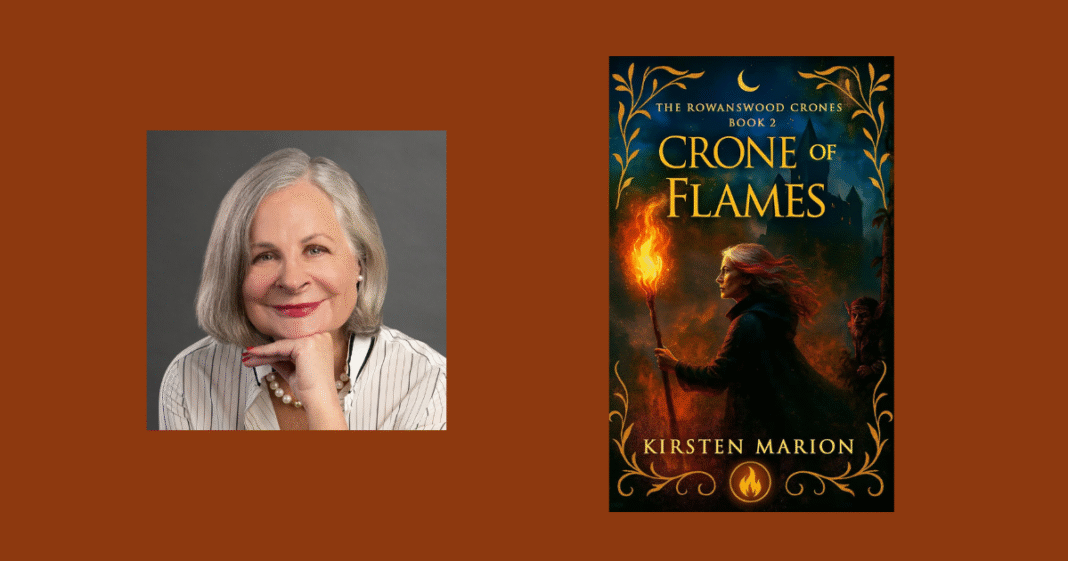What’s the story behind the story? What inspired you to write Crone of Flames?
Crone of Flames is the second book in The Rowanswood Crones series. Having faced a major midlife reinvention of my own, the series grew out of my fascination with what happens when a woman’s world burns down—literally and metaphorically—and she has to decide what rises from the ashes. I wanted to explore reinvention and resilience through a sixty-year-old heroine who’s not discovering her magic for the first time, but rediscovering herself after loss, betrayal, and change. There’s a huge readership of women 50+ who want stories that reflect their strength and humor but also acknowledge the messiness of transformation. Olivia’s journey through fire—both emotional and elemental—became a mirror for that stage of life when everything familiar shifts and you have to reclaim your spark. At its heart, Crone of Flames is about rising—wiser, braver, and a little more dangerous than before.
If you had to pick theme songs for the main characters of Crone of Flames, what would they be?
“Phoenix” by Olivia Holt. It captures her journey from loss to renewal—the moment she understands that the fire which seemed to consume her life was really the spark of her own rebirth. Like the song, Olivia rises stronger, brighter, and entirely herself.
What’s your favorite genre to read? Is it the same as your favorite genre to write?
I love fantasy and cozy mysteries, and I write in the same genre(s) as I read.
What books are on your TBR pile right now?
My Kindle’s a delightful mix of magic, mischief, and reinvention. Next up are The Rose Field by Philip Pullman, The Stone Witch of Florence by Anna Rasche, and The Retired Assassins’ Guide to Country Gardening by Naomi Kuttner. Clearly, I have a soft spot for stories that blend the extraordinary with the everyday.
What scene in your book was your favorite to write?
One of my favorite scenes takes place in the fae realm, when Magnus—Olivia’s cat familiar—finally loses patience with her. In his frustration, he shifts into his tiger form and confronts her about the boundaries she’s failed to set. It’s a fierce, protective moment born of love and exasperation, and it forces Olivia to face a truth many women recognize: when we give too much of ourselves away, our power seeps out with it. Writing that scene was both raw and liberating—it marked the moment she began to reclaim her fire.
Do you have any quirky writing habits? (lucky mugs, cats on laps, etc.)
I have a lovely home office, but I rarely write there. Most of Crone of Flames was written propped up in bed or curled on the couch with a strong cup of coffee in hand. There’s something about that cozy, unstructured space that invites the magic in—it feels less like work and more like stepping straight into Rowanswood.
Do you have a motto, quote, or philosophy you live by?
It’s never too late to spark a little magic. Reinvention isn’t a consolation prize for women over fifty—it’s their superpower.
If you could choose one thing for readers to remember after reading your book, what would it be?
I hope readers—especially women over fifty—finish Crone of Flames, remembering that fire isn’t just destruction; it’s transformation. Even after loss or upheaval, we have the power to rise again—stronger, wiser, and more luminous than before. Reinvention isn’t about starting over; it’s about owning everything you’ve already become.
Sign up for our email and we’ll send you the best new books in your favorite genres weekly.

